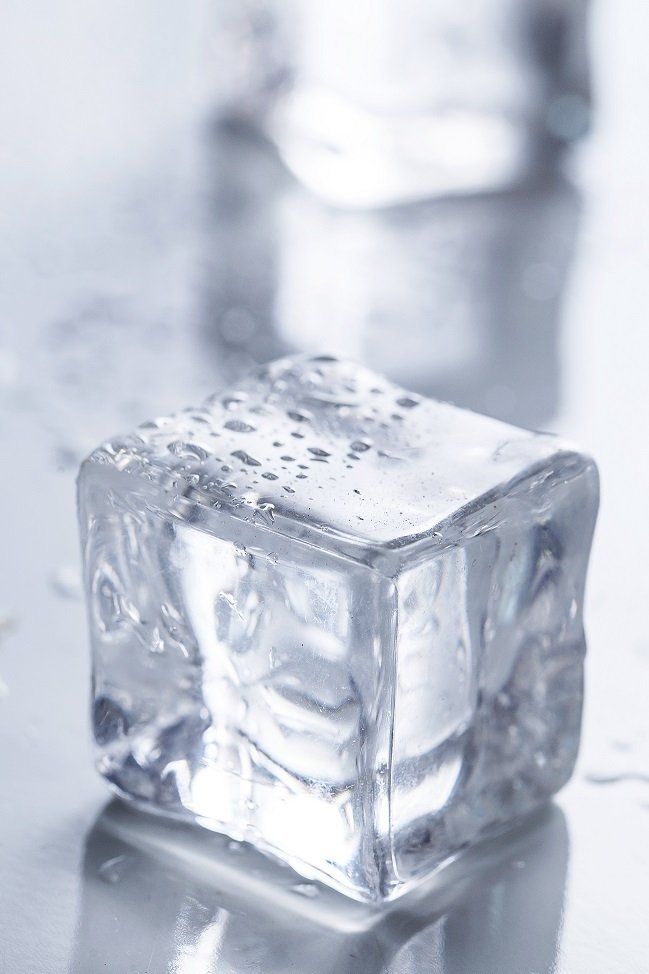Expert tips

On/Off Switch Make sure the on/off switch is in the “on” position and hasn’t been turned off accidentally. Shut-off Arm Make sure the arm is in the down position and that nothing is blocking it. Water Filter Make sure the filter is not clogged. Check the owner’s manual for instructions to replace it. Ice Paddle Make sure the paddle is not stuck or blocked, preventing ice from being dispensed. Freezer Temperature Make sure the freezer temperature is at 0 degrees Fahrenheit. Water Line Behind Refrigerator Make sure the water line behind the refrigerator is not pinched or crimped. Water Valve Make sure the water supply valve is turned on. It can be located behind the refrigerator, under the sink, or in the basement below the refrigerator.

To repair, or not to repair? That is the question on most homeowners’ minds when their appliance is on the fritz. Appliances are an investment, and you want to make them last as long as possible, but there are times when the cost of maintaining and up-keeping your appliance is greater than purchasing a new one. How do you know when to call an appliance repair technician or when to start shopping for something new? Here are a few things to consider: They don’t make ‘em like they used to. Remember in the ‘70s and ‘80s, when appliances seemed to live forever? Household appliances like refrigerators, washers, dryers, ovens and dishwashers were built to last almost as long as you own your home. They were built like heavy-duty machines that could withstand decades before needing to be replaced. Newer appliances are built more like computers, leaving them with more advanced technological vulnerabilities. If your “old reliable” is starting to slow down after years of hard work, consider repairing it instead of replacing it. Is your appliance still under warranty? It is not uncommon for appliances to have issues within their first few years. If your appliance is new, check if your warranty covers the repair. Sure, there are rare occasions that you may have purchased a lemon appliance, but often the issue is due to an error in installation, plumbing or electrical line problems, or it could be user error. If your appliance is still under warranty, opt to repair instead of replacing it. Is it the end of your appliance’s useful life? All good things must come to an end, including your appliance’s life. Someday the time will come when it costs more to continually maintain your appliance than it does to buy a new one. It is advised to use the 50% rule – if your appliance is 50% through its lifespan, the cost to fix it should be less than 50% of the price of a new appliance. According to Consumer Report, here is a list of the life expectancy of modern appliances: Gas Range: 15 years Range & Oven Hoods: 14 years Electric Range: 13 years Dryers (electric and gas): 13 years Refrigerators: 13 years Garbage Disposal: 12 years Freezers: 11 years Washing Machines: 10 years Microwaves: 9 years Compactors: 6 years Dishwashers: 9 years With proper care and usage, the lifespan of your appliance can exceed these averages. At Revolff Home Services, we pride ourselves on making honest recommendations when we believe it would be best for our customer to replace their appliance than to repair it. Could proper maintenance extend the life of your appliance? Guilty of overloading your washing machine or not scraping off excess food before placing your dishes in the dishwasher? When was the last time you had your dryer vents or refrigerator coils cleaned? Have you changed your washer hose since it’s been installed? If putting in a little time, TLC and money for preventative maintenance on your appliances will help extend its life, choose to repair it instead of replacing it. Do you want a matching set? Appliance manufacturers often change the look and feel of appliances to keep them looking modern and updated. If you replace your dryer, would you need to buy a new washing machine as well? Would a new dishwasher make your other kitchen appliances look outdated? If you want your appliances to match and hope to keep expenses low, consider repairing instead of replacing it. Have you considered the additional fees associated with repairing or replacing? Don’t forget about the extra fees associated with both repairing and replacing your appliance. If you are considering purchasing a new appliance, most appliance retailers charge a delivery fee to transport and install your new appliance in your home. Similarly, appliance repair companies charge a standard trip/diagnosis fee for an expert technician to come to your home to troubleshoot your appliance and identify the problem (and they charge this fee whether you repair your appliance or not). Luckily, with Revolff Home Services, if you do decide for our technician to repair your appliance, the Trip/Diagnosis fee comes out of your total repair estimate – so you’ll pay less out of pocket. Do you have the time to repair or replace your appliance? If you are considering replacing your appliance, factor in the value of your time and stress of shopping for a new appliance, plus the days/weeks it could take your appliance retailer to deliver and install your new appliance. Can you afford that downtime without a working refrigerator, dishwasher, washing machine or dryer? Even busy appliance repair companies will only take a couple of days to get to your home, will schedule a convenient time to come to you, and can usually fix your appliance in one visit. Have you considered your carbon footprint? Appliances made in the last 20 years are built more energy-efficient and designed to save more water than ever before. If your appliance was made past 1996, it has been subjected to Energy Star requirements by the EPA. Therefore, if your broken appliance was made after that time and has the familiar yellow Energy Star tag on it, consider repairing it instead of sending it to the landfill.

There’s nothing worse than a warm fridge, especially when it’s nearing 90 degrees outside! Unfortunately, it’s notable that when the weather starts to warm up, refrigerators start to break down. Appliances like refrigerators work hard to regulate and maintain their appropriate temperature, and both the rising temperature and increased usage over the summer makes them work harder and sometimes malfunction. Here are a few preventative tips to keep your refrigerator working at its best: Change your water filter every six months: This is something most fridge owners forget about! If you don’t change them often enough, they’ll cut down on the cleanliness of your water and may even stop your water flow to your ice maker and water dispenser. It’ll make your water and ice taste better as well. Clean your refrigerator’s condenser coils every six months : Is your refrigerator still running, but not getting as cool as it used to? It might be time to clean the condenser coils. The condenser is often located underneath your fridge, but it could also be on the back or top of your unit depending on the model. This area of your fridge often attracts dust and pet hair which can cause reduced energy efficiency, poor cooling temperatures and premature refrigerator failure. It’s important to note that not all refrigerators have condenser coils in a location that can be cleaned by the consumer. Request a condenser coil cleaning during your next repair service, dryer vent cleaning or gas fireplace cleaning! Keep your trip to the fridge at a minimum: Refrigerators work hard to maintain their internal temperature and remove moisture that is naturally presented in the air inside of the unit (especially during more humid times of the year). A little condensation in your fridge is normal; you’ll find that your glass shelves and food packages may fog up or collect condensation when the doors are frequently opened in the midst of summer humidity. But, it may be a sign of a larger problem with your refrigerator. Decide on your snack before opening the fridge door and get all of your ingredients out all at once. If your refrigerator is currently not working as it should, give the experts at Revolff Home Services a call at (702) 997-8786 or schedule your repair online. Be sure to provide us with your appliance’s make, model and serial number – this helps us to diagnose potential problems over the phone and come prepared with the parts we need to fix your specific refrigerator during our initial service call. We always try our hardest to be as efficient as possible so we can repair your appliances in one service trip.

